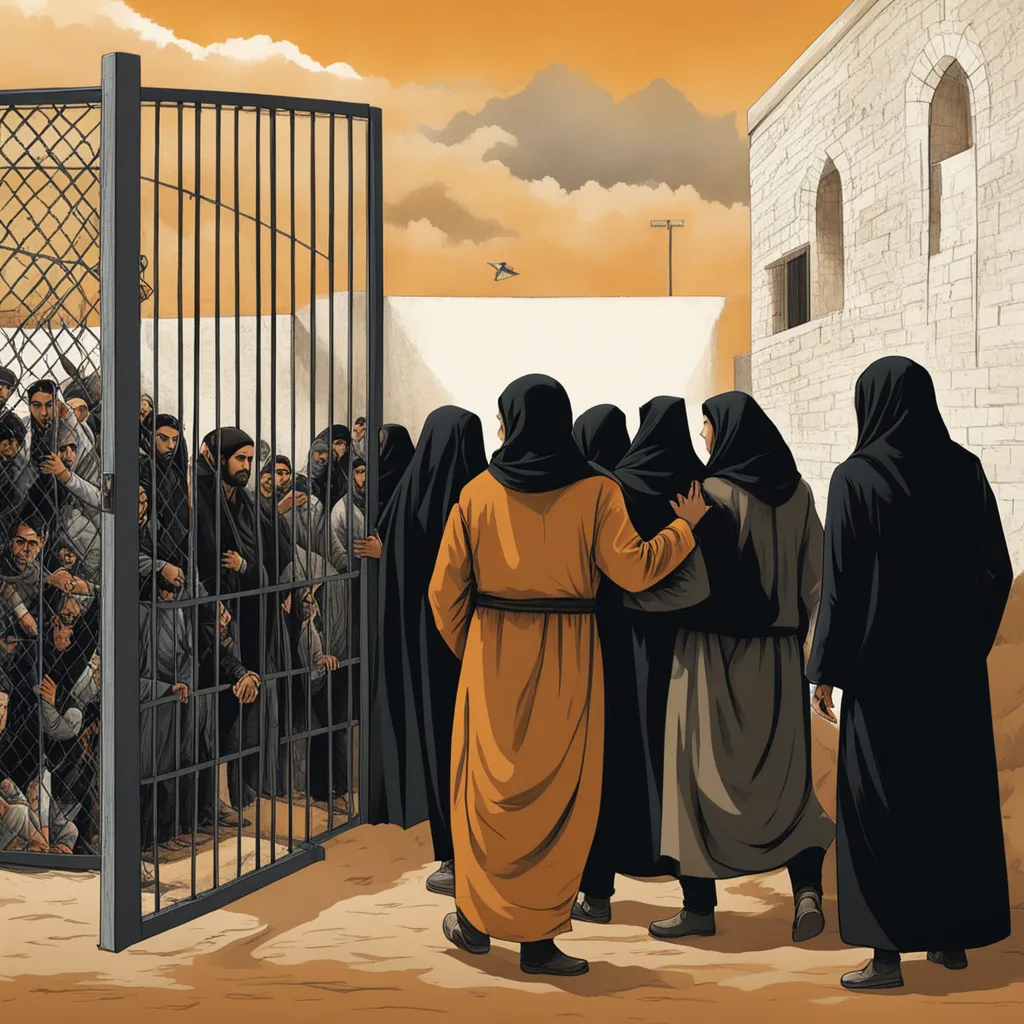Freed Palestinian Prisoners Shed Light on Israeli Justice System
Fatima Shahin, a 33-year-old from Bethlehem, spent seven months in an Israeli prison. She was initially accused of attempted murder in the occupied West Bank but was never charged with any crime.
On Friday, she was among the 39 Palestinians released as part of a truce between Israel and Hamas. So far, Israel has released 180 Palestinian prisoners, while Hamas has released 81 hostages.
Most of those released (128 out of 180) were detained without being charged, put on trial, or given a chance to defend themselves. Some were not even informed about the reasons for their detention.
Israel operates two distinct justice systems in the West Bank, with Palestinians falling under its military court system, where judges and prosecutors are uniformed Israeli soldiers. Jewish settlers, on the other hand, are subject to civilian courts.
A legal adviser at the Israel Defense Forces’ International Law Department explained that these different systems exist because international law prohibits Israel from exporting its legal system to the West Bank.
B’Tselem, a non-governmental organization focused on human rights, argues that these courts maintain Israel’s control over the Palestinian people.
Fatima Shahin, while in detention, was denied access to a lawyer and barred from communicating with her family as she recovered from injuries sustained during her arrest.
Despite Israel Prison Service's claim that the released prisoners were serving time for serious crimes, data shows that most of them hadn't been charged or convicted.

Administrative Detention
Before the recent truce, the Israeli Ministry of Justice listed 300 Palestinian prisoners and detainees eligible for release, many of whom had not been charged or sentenced for any crime.
Some were held under administrative detention, allowing Israeli authorities to detain people indefinitely on security grounds without trial or charge, sometimes based on classified evidence.
This leaves detainees facing unknown allegations without a way to disprove them or knowing when they will be released.
According to the Israel Prison Service data, over 1,300 Palestinians were held in administrative detention as of September, with about half detained for more than six months.
The IDF legal adviser stated that administrative detention is in line with international law frameworks and complies with the Geneva Convention but acknowledged it might be used heavily in some cases.
Children in Detention
Israel has also faced criticism for detaining children aged 18 or younger.
Israeli law allows children as young as 12 to be imprisoned for up to six months and sent to military prisons alongside adults.
Many of those released in the exchange deal were teenagers between 16 and 18, with some as young as 14 and 15.
Children in Israeli military detention are subject to limited rights and do not meet international juvenile justice standards.
According to Save the Children, between 500 and 1,000 children are held in Israeli military detention each year. Many are detained for stone-throwing offenses, which can carry a maximum penalty of 20 years in prison under Israeli law.
Earlier this year, Save the Children reported that a majority of detained children faced physical abuse, threats, and strip searches during interrogation.
The recent events have raised concerns about Israel's use of administrative detention and the treatment of children in its military justice system.

No comments:
Post a Comment